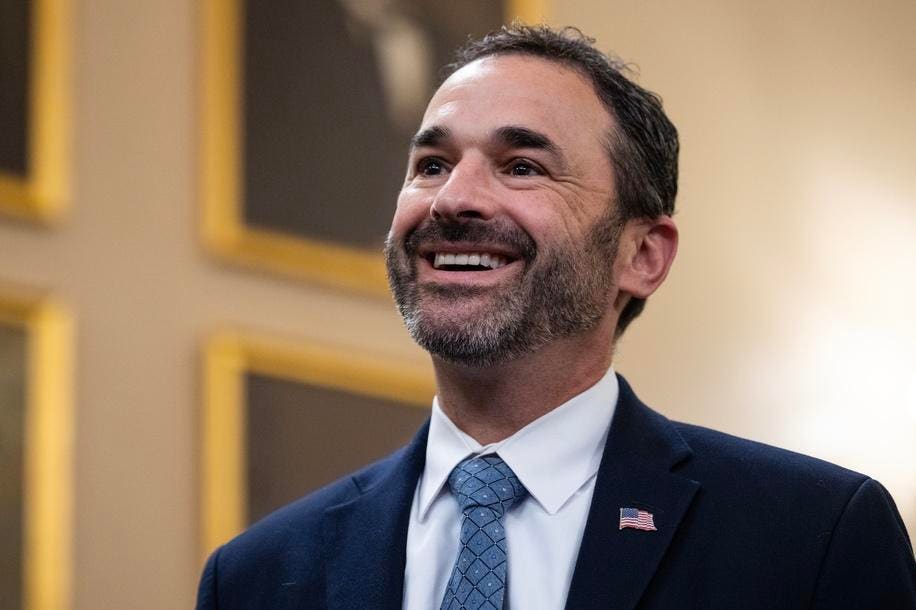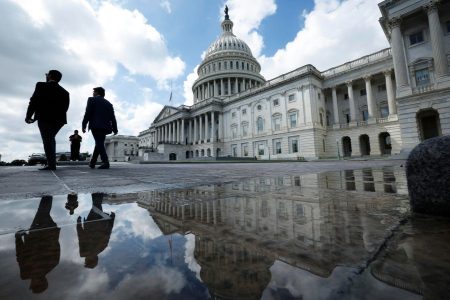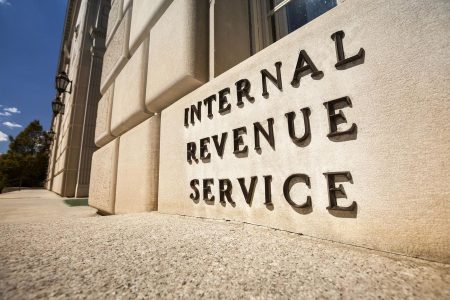Direct File will be a permanent, free tax filing option—that’s the word from the U.S. Department of the Treasury and IRS.
The announcement, which was made jointly by U.S. Secretary of the Treasury Janet L. Yellen and IRS Commissioner Danny Werfel, made clear that not only would the program be permanent, but it would be available to all 50 states and the District of Columbia for the 2025 filing season. However, not all taxpayers will benefit immediately. The pilot was limited to those with simple returns. Yellen acknowledged the challenges in rolling the program out to all taxpayers, saying, “over the next few years, we will expand Direct File so that it supports all of the most common tax situations.”
“Meeting your tax obligations and claiming the credits and deductions for which you’re eligible should be easy,” said Yellen, noting that “the IRS has been underfunded for decades, so taxpayers haven’t gotten the support they deserve. Thanks to the Inflation Reduction Act, we’ve been changing this.”
Direct File Pilot
As part of a pilot program in 2024, eligible taxpayers were able to file their federal tax return for free, directly with the IRS, using Direct File.
The pilot was announced in October 2023 and closed after the filing season ended in April 2024. The IRS has called it a success, saying that several hundred thousand taxpayers across 12 states signed up for Direct File accounts, and 140,803 taxpayers filed their federal tax returns using the new service. Eligibility was limited to taxpayers with simple returns in Arizona, California, Florida, Massachusetts, Nevada, New Hampshire, New York, South Dakota, Tennessee, Texas, Washington, and Wyoming.
The IRS began promoting the program in January of 2024, with a more robust push to taxpayers when the program fully opened in March. The March rollout of the pilot program included making the service available in Spanish.
According to the IRS, taxpayers filed—for free—to obtain more than $90 million in refunds and saved an estimated $5.6 million in filing costs.
(An earlier IRS survey indicated that the average American spends $270 to file their taxes.)
Inflation Reduction Act
As part of the Inflation Reduction Act, Congress tasked the IRS with delivering a report on, among other things, the cost of developing and running a free direct e-file tax return system, including costs to build and administer each release, with a focus on multi-lingual and mobile-friendly features and safeguards for taxpayer data. The IRS released the report to Congress in May 2023.
According to the report, the IRS spent several months studying how an IRS-run free direct e-file tax return system might work. Most taxpayers surveyed by the agency reported interest in using an IRS-provided tool to prepare and file their taxes. At the time, the IRS indicated it hoped to make that a reality for some taxpayers for the 2024 tax filing season.
At the same time, the House GOP proposed an appropriations bill that would bar the IRS from using funding to develop or provide a free direct-file tax return system without the prior approval of the Committees on Appropriations of the House and the Senate, House Ways and Means Committee, and Senate Finance Committee. The House failed to pass a long-term appropriations bill, and the short-term funding bill did not address the direct-file tax program.
When the filing season opened in January 2024, the IRS announced the limited-scope pilot, which it claimed would allow the IRS to evaluate the costs, benefits, and operational challenges associated with providing the option to taxpayers.
The pilot was, the IRS says, a success. According to the IRS, Direct File users reported a high degree of satisfaction and quick answers to their filing questions. In a GSA Touchpoints survey of more than 11,000 Direct File users, 90% of respondents ranked their experience with Direct File as “Excellent” or “Above Average.” Most survey respondents who filed taxes in the prior year reported having to pay to prepare their taxes last year. Among survey respondents, 47% of users paid to file their taxes last year, and 16% did not file last year at all.
When asked what they particularly liked, respondents most commonly cited Direct File’s ease of use, trustworthiness, and that it was free. Additionally, 86% of respondents said their experience with Direct File increased their trust in the IRS.
(You can read what some taxpayers had to say to Forbes about their experiences here.)
Proposal To Treasury
On May 22, Werfel recommended to Yellen that Direct File be made permanent. “Taxpayers across the nation have told us they want no-cost filing options,” he wrote. “Direct File – which provides taxpayers a new option to file online, for free, directly with the IRS – is the answer to that call.”
Additionally, Werfel noted that “Millions of taxpayers who did not live in one of the 12 pilot states visited the Direct File website to learn more about this option or asked live chat assistors to make Direct File available in their state.”
On May 28, Yellen responded that she agreed with the proposal, pointing out that countries like the United Kingdom and Australia have offered products like Direct File for some time. While she didn’t directly address costs, she noted that the IRA “was passed in order to give the President the tools needed to lower costs for the American people.”
While funding appears secure today—Werfel indicated in his remarks on May 30 that the Biden administration had budgeted $75 million for the program—that isn’t necessarily the last word. A program like Direct File will require additional financial support, especially as it expands to include more complex returns, and that may not sit well with some Republican members of Congress.
What About Free File?
IRS currently offers another product—Free File—as part of a public-private partnership between the IRS and Free File Inc., formerly the Free File Alliance. Through this partnership, tax preparation and filing software providers make their online products available to eligible taxpayers.
Qualifying Free File taxpayers typically have adjusted gross income (AGI) of $79,000 or less. If your AGI is over $79,000, you can use IRS Free File Fillable Forms, the electronic version of IRS paper forms. According to the IRS, in 2024, Free File saw an increase of about 200,000 tax returns, reaching 2.9 million as of May 11. That’s an increase of 7.3% from the 2.7 million filed through the same period last year.
Does Direct File’s success mean an exit for Free File? Werfel says no, confirming, “We remain committed to the IRS’s ongoing relationship with the Free File Alliance, who have been critical partners in serving taxpayers for two decades. As we work to expand the Direct File system, we will also strengthen free filing options for taxpayers. Giving taxpayers additional options strengthens the tax filing system.”
Earlier this month, the IRS announced that it had agreed to extend the Free File program through October 2029, following an agreement to continue making free private-sector tax software available to taxpayers.
Reactions
Adam Ruben, VP of Campaigns and Political Strategy at Economic Security Project, a leading member of the Coalition for Free and Fair Filing, welcomed the announcement, saying, “IRS Direct File delivered on the promise of free and simplified tax filing for taxpayers, and we are excited to see that the program is here to stay. It was evident that taxpayers saw the value of Direct File, both in making their lives easier and demonstrating what great government customer service looks like.” Ruben added, “We are already working with our partners in states across the nation to support the expansion of Direct File next year so more taxpayers can take advantage of free and simplified tax filing in the next tax season.”
Alex Lundrigan, Federal Workforce Development and Finance Policy Coordinator at Young Invincibles, a national organization committed to expanding economic opportunity for young adults ages 18 to 34, echoed those comments, saying, “This is a monumental win for taxpayers, especially young adults and those in low-income communities, who will exponentially benefit from this free, easy, and public filing option. While we will continue to celebrate this win, we know there will be more challenges ahead. It is imperative that advocates continue protecting IRS funding and stop attacks at the federal level that will try to derail this program’s permanent implementation.”
Rep. Don Beyer (D-Virginia 8th District) called the announcement “Huge news” on X, formerly known as Twitter, adding, “This is a big win for the American people! Virginia should absolutely join for 2025.”
Sen. Chuck Schumer (D-N.Y.) likewise applauded the news, tweeting, “It’s great news that the IRS’ Direct File program is now a permanent and free tax filing option! Now, taxpayers nationwide can save time and money by filing directly with the IRS. And it’s made possible by key investments in the IRS from our Inflation Reduction Act!”
Intuit Inc., the platform that owns TurboTax, saw its stock tumble 35.31 points—5.9%—following the news. Shares had also dropped sharply earlier in the month when the company reported losing one million customers who use its TurboTax service for free. The shares fell 8.3% to $606.99 at the close on May 24, 2024. Today, the shares closed at $562.97.
An Intuit spokesperson said, about the announcement, “Today’s decision by Treasury and the IRS to expand Direct File doesn’t change the fact that this program is a solution in search of a problem and every American can already file their taxes for free, without any cost to the government or taxpayers. This was true on the day Direct File was launched and remains true today.”
In 2019, ProPublica wrote a series of articles focusing on the lengths it claims tax software companies like Intuit
Intuit
Block
The American Coalition for Taxpayer Rights (ACTR), which represents retail tax preparation and tax software companies, including Intuit and H&R Block among its members, blasted the program as “costly and duplicative.”
Why It Matters
Most U.S. taxpayers file their returns electronically—90.7% of individually filed returns were filed electronically in fiscal year 2023, according to the IRS Data Book, 2023. Paid preparers and paid tax software account for most of the more than 140 million U.S. households that file returns.
At the end of the 2024 filing season, over half (54%) of all e-filed returns were prepared by tax preparers, a percentage that’s likely to increase when taxpayers on extension submit their returns. Considering the complexity of returns generally filed by professional preparers—and the timeline for ramping up Direct File to include more complicated returns—that’s not likely to change any time soon.
Read the full article here
















